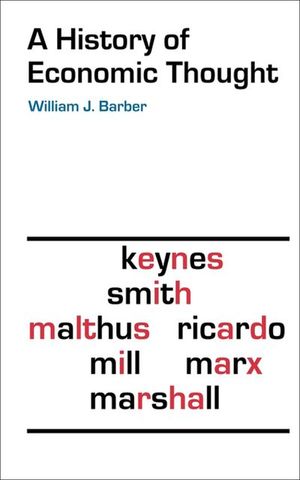A History of Economic Thought
Published by Wesleyan University Press
This critical study of the development of systematic economic ideas explores them in both historical and contemporary contexts.
Many of the issues that faced economists in the past are still with us. The theories and methods of such men as Adam Smith, T. R. Malthus, David Ricardo, J.S. Mill, Karl Marx, Alfred Marshall, and J. M. Keynes are often relevant to us today. As the Great Recession taught us in the first decade of the twenty-first century, the history of economic thought can have wide-ranging practical applications.
In this volume, Professor William J. Barber assesses the thought of a number of important economists both in terms of the issues of their day and in relation to modern economic thought. By concentrating on the greatest exponents, he highlights the central properties of the four main schools of economic thought—classical, Marxian, neo-classical, and Keynesian—and shows that although each of these traditions is rooted in a different stage of economic development, they can all provide insights into the recurring problems of modern economics.
BUY NOW FROM
COMMUNITY REVIEWS

